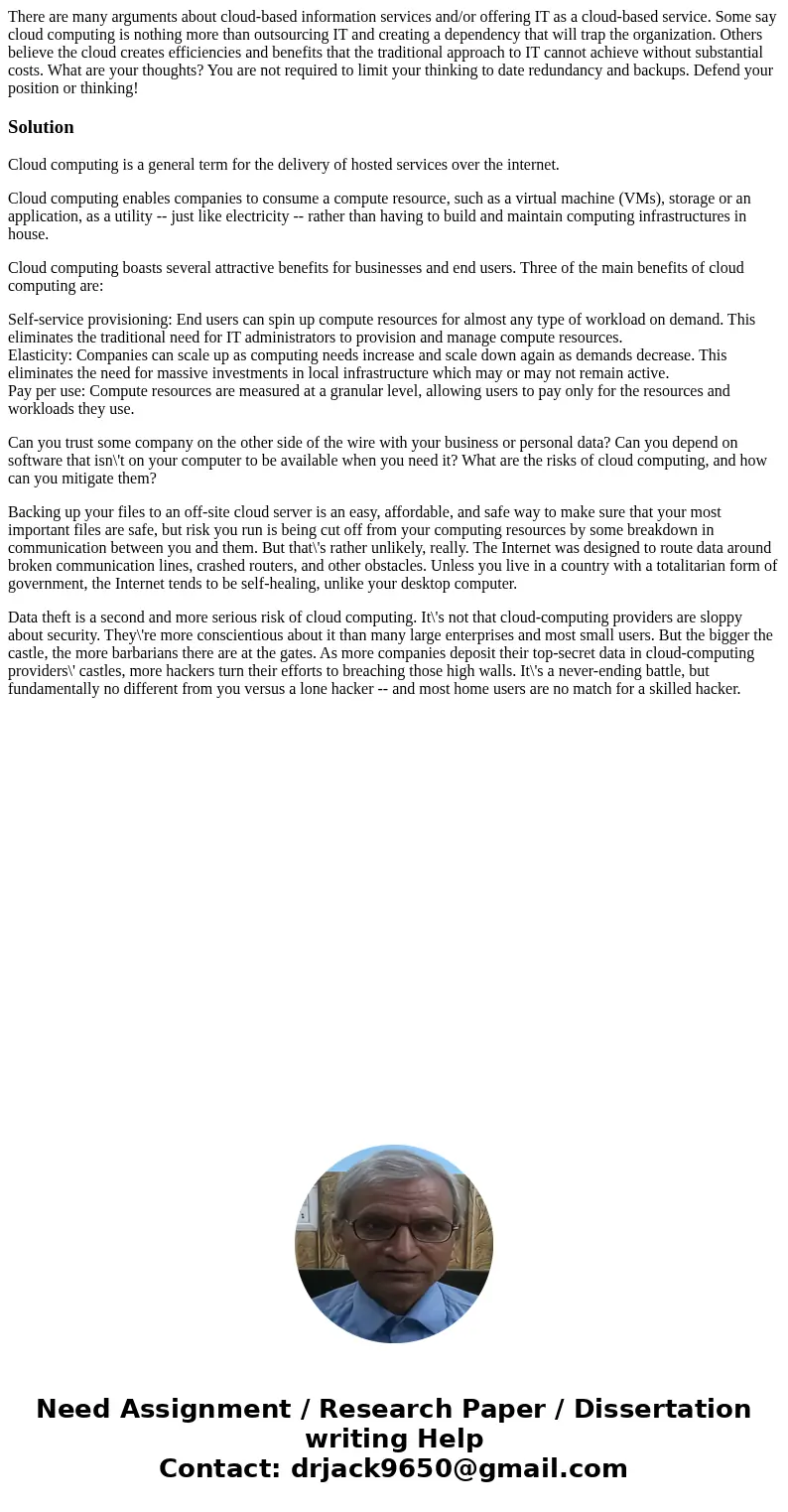There are many arguments about cloudbased information servic
There are many arguments about cloud-based information services and/or offering IT as a cloud-based service. Some say cloud computing is nothing more than outsourcing IT and creating a dependency that will trap the organization. Others believe the cloud creates efficiencies and benefits that the traditional approach to IT cannot achieve without substantial costs. What are your thoughts? You are not required to limit your thinking to date redundancy and backups. Defend your position or thinking!
Solution
Cloud computing is a general term for the delivery of hosted services over the internet.
Cloud computing enables companies to consume a compute resource, such as a virtual machine (VMs), storage or an application, as a utility -- just like electricity -- rather than having to build and maintain computing infrastructures in house.
Cloud computing boasts several attractive benefits for businesses and end users. Three of the main benefits of cloud computing are:
Self-service provisioning: End users can spin up compute resources for almost any type of workload on demand. This eliminates the traditional need for IT administrators to provision and manage compute resources.
Elasticity: Companies can scale up as computing needs increase and scale down again as demands decrease. This eliminates the need for massive investments in local infrastructure which may or may not remain active.
Pay per use: Compute resources are measured at a granular level, allowing users to pay only for the resources and workloads they use.
Can you trust some company on the other side of the wire with your business or personal data? Can you depend on software that isn\'t on your computer to be available when you need it? What are the risks of cloud computing, and how can you mitigate them?
Backing up your files to an off-site cloud server is an easy, affordable, and safe way to make sure that your most important files are safe, but risk you run is being cut off from your computing resources by some breakdown in communication between you and them. But that\'s rather unlikely, really. The Internet was designed to route data around broken communication lines, crashed routers, and other obstacles. Unless you live in a country with a totalitarian form of government, the Internet tends to be self-healing, unlike your desktop computer.
Data theft is a second and more serious risk of cloud computing. It\'s not that cloud-computing providers are sloppy about security. They\'re more conscientious about it than many large enterprises and most small users. But the bigger the castle, the more barbarians there are at the gates. As more companies deposit their top-secret data in cloud-computing providers\' castles, more hackers turn their efforts to breaching those high walls. It\'s a never-ending battle, but fundamentally no different from you versus a lone hacker -- and most home users are no match for a skilled hacker.

 Homework Sourse
Homework Sourse